Israeli PM To Hold Talks With Macron Over Iran In Elysée
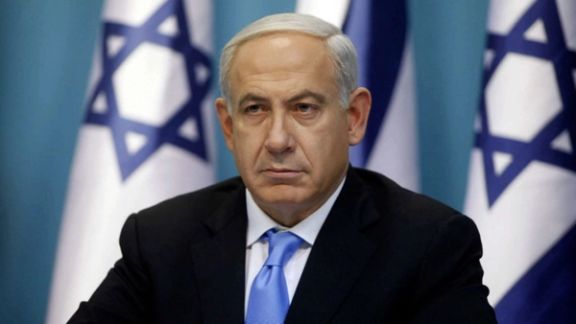
Israeli Prime Minister Benjamin Netanyahu will discuss Iran with French President Emmanuel Macron in Paris during his first foreign trip after regaining office.

Israeli Prime Minister Benjamin Netanyahu will discuss Iran with French President Emmanuel Macron in Paris during his first foreign trip after regaining office.
The Israeli Embassy in Paris announced Netanyahu will be in Paris on Thursday, February 2, and an order of priority he first will discuss with Macron the international efforts to stop the nuclear program of the Islamic Republic.
Macron and Netanyahu last met and talked three years ago in Jerusalem.
According to the Israeli embassy, the prime minister will also meet with French businessmen as well as the leaders of the French Jewish community.
The AFP reported that Israel hopes to encourage France to intensify pressure on the Iranian regime during the trip.
France agrees that "firmness" is needed in dealings with Iran, a diplomatic source told AFP, calling its nuclear program "dangerous" and highlighting its role in the Ukraine war.
Referring to Netanyahu's recent statements, AFP said that there seems to be a significant change in Israel's position regarding the war in Ukraine and that Jerusalem is now ready to consider the issue of providing arms to Ukraine.
So far, Israel has been cautious and has preferred to remain neutral in the Ukraine war due to the presence of the Russian army in Syria.
Israel has been able to continue its military air operations over Syria without facing a military response from Russia.
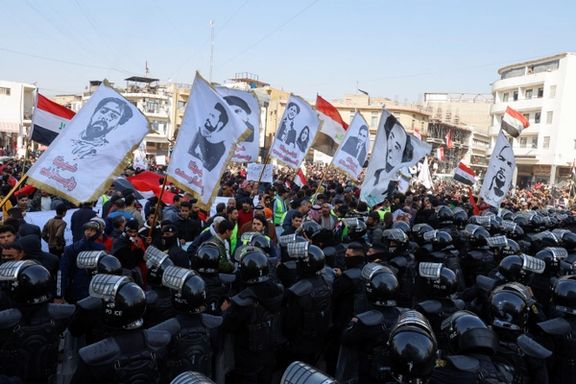
Washington has imposed new restrictions on dollar transfers to Iraq as the Arab country’s banking officials believe there is widespread money laundering sending funds to Iran and Syria.
The Associated Press reported Thursday that the move was triggered a couple of months ago to stamp out what Iraqi officials describe as rampant money laundering that benefits Tehran and Damascus which are under US sanctions.
Iraq is now feeling the result, with an unprecedented drop in the value of its currency and public anger blowing back against the prime minister.
The exchange rate for the Iraqi dinar has jumped to around 1,680 to the dollar at street exchanges, compared to the official rate of 1,460 dinars to the dollar.
Hundreds of people once again demonstrated near the central bank headquarters in Baghdad on Wednesday to protest the devaluation of the Iraqi dinar against the dollar, which has triggered a rise in prices of imported consumer goods.
An informed source last week told Iran International that representatives from the Iraqi government are scheduled to go to US this month to discuss US monitoring and restrictions on dollar wire transfers by Iraqi banks that have reduced the supply of the greenback in the country.
People from different Iraqi regions waved Iraqi flags or carried banners demanding government intervention to stop the dinar's decline to around 1,620 to the greenback from 1,470 in November. “Stop the neighbors stealing our dollars,” one banner read, alluding to Iran.
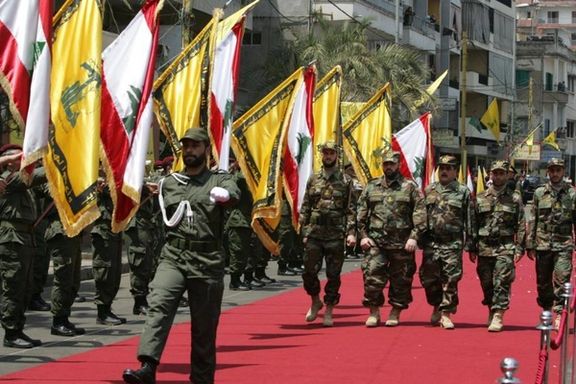
Israel asked visiting Chadian President Mahamat Deby on Thursday to reduce the influence of Iran and Hezbollah in Africa’s Sahel region.
The trip to open Chad’s embassy in Israel, included a rare stop at the Mossad intelligence headquarters - a sign that bilateral ties re-established five years ago have national security importance.
"This is a great day, an historic day for Chad and for Israel, too," Deby said in a videotape of the inauguration.
"I offer a prayer to God that, with the formal opening of our embassy here, relations between our countries will bring value to both peoples, yours and ours."
Standing beside the Chadian president, Netanyahu said: "We are strengthening our friendship, and our common interest in pursuing peace, security and prosperity."
Meeting Deby earlier, Israeli Defense Minister Yoav Gallant "raised the importance of narrowing the influence of Iran and Hezbollah in the Sahel region, as a key to ensuring stability, and thwarting the export of terrorism," Gallant's office said.
There was no immediate comment from the government in Chad or Tehran. In Beirut, Hezbollah's media office declined comment.
Muslim-majority Chad has not publicly spoken of any significant presence by Iran or Hezbollah in the Sahel, parts of which are contending with Sunni Islamist insurgencies.
Having returned to power last month, Netanyahu has vowed to expand the circle of Arab or Muslim countries that recognize Israel - even as he contends with a deepening and violent stalemate with the Palestinians.
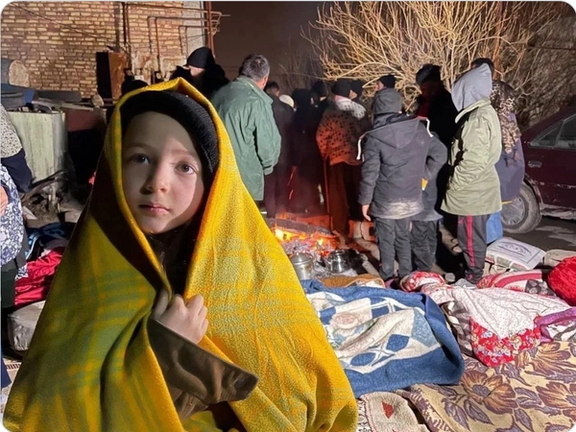
The judiciary blocked the bank account of popular footballer Karim Bagheri after he urged Iranians to make donations to the victims of Saturday’s earthquake in Iran.
In an Instagram post Tuesday, Bagheri, a former national team player, announced details of a bank account he had set up for collecting donations for the victims of the magnitude 5.9 earthquake in the city of Khoy which left three dead and injured hundreds. Tens of aftershocks have been registered since Saturday’s earthquake.
Meanwhile thousands of people spent their fifth night in sub-zero temperatures without adequate shelter and supplies as the government has failed to provide sufficient aid.
Mizan news, the news agency of the judiciary, said Wednesday the account was blocked because he had not requested a permit. The judiciary also said celebrities’ charity drives in the past had “resulted in crimes such as fraud”.
The judiciary also said it had banned collection of donations by individuals upon a request by the Red Crescent society. The ban effectively prevents citizens, particularly celebrities known to oppose the regime, and independent charities from collecting any donations during earthquakes and other natural crises.
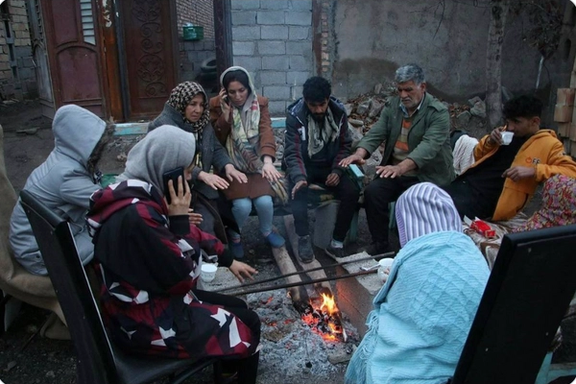
The only possible explanation is the regime’s disdain for any public initiative outside its structures, which could encourage independent activism in society.
Thousands in Khoy, a city of 200,000, and its surrounding villages who have lost their homes are still sleeping outside in the freezing cold for the fear of further tremors, and power is still out in many places. Government’s earthquake assistance is scarce and there are very long queues where necessities such as tents are distributed.
The government has dispatched security forces to the area in big numbers “to maintain order”. Locals say security forces have blocked the roads leading to Khoy and prevented popular donations from reaching the victims.
Those who take videos are arrested, locals say. A citizen-journalist said in a video taken secretly which he sent to Iran International, that the Basij militia of the Revolutionary Guards (IRGC) treat the victims harshly and do not allow anyone to take videos.
First Vice President Mohammad Mokhber admitted Wednesday, during a visit to the quake-hit Khoy, that the aid sent to the area in the past few days has been far from meeting the immediate demands of the victims.
Mokhber, however, cast the blame on the Red Crescent Society for the shortcomings and accused the secretary general of the Red Crescent, Dr Yaghoub Soleimani, who was accompanying him for “falsely reporting that the conditions in the quake-hit area were satisfactory.
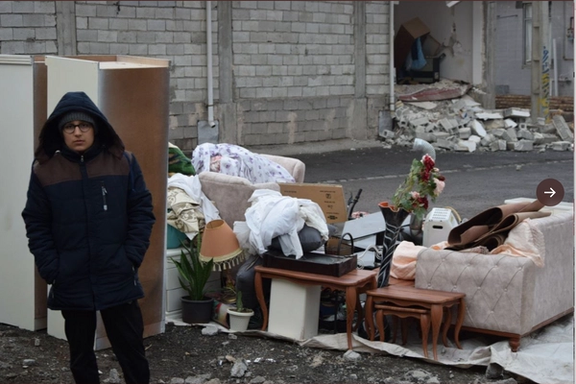
“People say they sleep in the cold [outside] but you claim you have distributed tents. We thought the situation was good based on your report. It’s several days since the quake and some people have neither bread nor water or tents. You should have told us to provide all the necessary items,” Mokhber told Soleimani in front of cameras.
The Iranian Red Crescent Society is only nominally a non-governmental organization. The society is tightly controlled by the government and its head is an appointee of the president.
Announcing the deactivation of his account by the authorities, in another post Wednesday Bagheri apologized to his fans whose attempt to donate had failed. “I hoped substantial donations could be given to our people, but God is my witness that my hands are tied.”
Bagheri had successfully launched a charity drive to help victims of another earthquake in East Azarbaijan Province in in 2012. At the time he said he had handed over the donations to the authorities to use for rebuilding houses destroyed by the quake.
The government similarly blocked the account of former soccer legend Ali Daei in November 2017 when he requested donations to help the quake-hit people of Kermanshah and personally went to the area to deliver the aid consisting of 15 trucks of clothing, food, and blankets. Daei had also raised $1.7 million in cash.
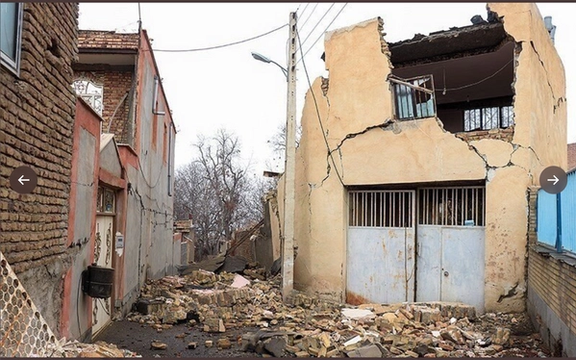
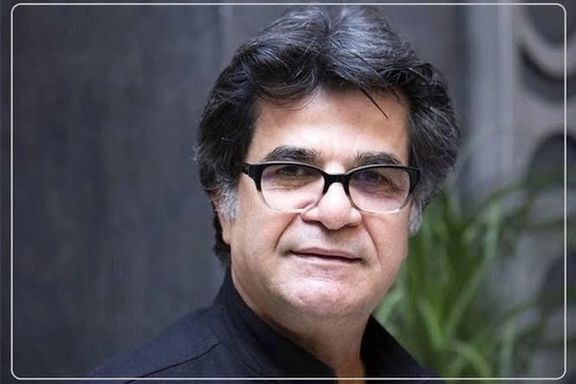
Famous Iranian filmmaker Jafar Panahi has gone on a hunger strike to protest his detention in Tehran while his sentence has been declared void by the country’s Supreme Court.
Tahereh Saeidi, Panahi’s wife, announced his hunger strike Wednesday publishing Panahi’s statement on her Instagram sent from the notorious Evin Prison where most political prisoners are kept.
“I firmly declare that in protest against the illegal and inhumane behavior of the judicial and security apparatus and their hostage-taking, I have started a hunger strike since the morning of February 1… I will refuse to eat and drink any food and take medicine until the time of my release,” reads his statement.
The director was imprisoned in early July after going to Evin prison to enquire about the whereabouts of his other renowned filmmakers Mohammad Rasoulof and Mostafa Al-Ahmad following their arrest a few days earlier.
Later, it was announced the Iranian authorities had decided to reactivate a six-year sentence originally meted out to Panahi in 2010 alongside a 20-year filmmaking and travel ban.
The charges were connected to his attendance at the funeral of a student who was shot dead in 2009 during the Green Movement protests and his later attempt to shoot a feature about the uprising.
In October, Iran’s Supreme Court announced that Panahi’s sentence had passed the country’s ten-year statute of limitations. Accordingly, this should have granted Panahi immediate release, but he is still behind bars.

The US military says it played a role in an operation last month that intercepted an Iranian shipment of weapons to Yemen’s Houthi rebels.
The US military announced Wednesday that the US Navy assisted the French military in seizing thousands of assault rifles and half a million rounds of ammunition that were being transferred from Iran to Yemen in January.
US Central Command confirmed over 3,000 assault rifles, 578,000 rounds of ammunition, and 23 anti-tank guided missiles were confiscated.
It also added that the seizure is “one of four significant illicit cargo interdictions over the past two months,” which has prevented the transfer of more than 5,000 weapons and 1.6 million rounds of ammo to Yemen. Another seizure of arms was announced earlier in January.
In a separate release on Wednesday, CENTCOM also announced that Yemeni security forces recently seized 100 unmanned aerial vehicle engines “bound for Houthi militants,” but it did not specify when the seizure happened.
The seizure came just five days after CENTCOM announced that the US had intercepted a shipment of 2,116 Iranian assault rifles heading for Yemen.
Yemen has been the scene of a civil war since 2015. Tehran has supported the Houthis, a rebel group that overthrew the government at the beginning of the war, against a Saudi-led coalition. The war has caused widespread poverty and left tens of thousands of civilian casualties, creating one of the world’s worst humanitarian crises as aid workers say.